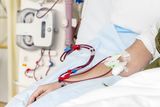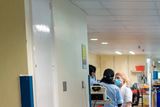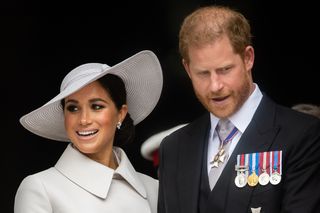Organ donor who gave my mother a lung saved her life – and in a way, saved mine too
Organ donors are every day heroes who give us time with loved ones


Fourteen years ago my family was blessed with the incredible generosity of an organ donor. My mother received a life-saving lung transplant.
It saved her life and, in a way, mine too.
I loved her desperately and had I lost her then, when I was still a young woman who needed her, I think the grief would have broken me.
We got an extra 13 years and I am grateful for every day we shared.
She got to see me get married and she got to know and love my son.
When she died in October 2022, I was four months pregnant.
I was quite young when I was on dialysis initially and I think all sick children are carried along by their mothers and I certainly was
So she never met my daughter. Passing ships. But I feel the three of us are connected in a way I can’t explain.
I will tell my daughter all about my mum. How special she was. How kind she was. How wise and brave and strong she was. And how she lived her life with grace.
Anyone awaiting a transplant needs those qualities.
And my friend and neighbour Matthew McNeive, who has been waiting many years for a kidney transplant, has the very same inner steel. Matthew grew up two doors from my family in Knock, Co Mayo.
He received his first transplant within a few days of Mammy. It was a remarkable coincidence. He was 11 and Mammy was nearly 60. And they were firm friends.
Matthew was in the womb when doctors discovered complications due to a blockage in his bladder, which destroyed one kidney and damaged the other.
He ended up on dialysis in 2009, carefully managed by his mother Bernadette for five days a week, 12 hours at a time.
When he got the call for a kidney transplant nine months later – thanks to the generosity of a deceased donor he is profoundly grateful to – his life dramatically changed.
“From that, there was no dialysis and I could eat whatever I wanted. Which was amazing for an 11-year-old. I got to live fully,” he said.
Before having his kidney transplant at age 11, Matthew had to undergo dialysis for five days a week, 12 hours at a time. File photo: Getty Images
“The next years, including all of secondary school, was brilliant but unfortunately the week I was due to start college the kidney failed again.
“I was quite young when I was on dialysis initially and I think all sick children are carried along by their mothers and I certainly was. My mother is fantastic. But it has been very hard on her.
“It’s tough enough on two parents but she was on her own after my dad died when we were young. She looked after me and raised my brothers and kept down a job. She is amazing.
“I was 20 the next time I had to begin dialysis so I was a lot more aware of what was involved. It meant no swimming, no long holidays unless you get dialysis abroad which is a bit of a pain.
“And then when my kidney function went down my diet became very, very strict. I can only have one litre of fluid a day and that includes if I want a coffee, it can only be one coffee.
“There are no potatoes, no tomatoes, no avocados and only two portions of fruit a day, no phosphates, no dairy and then it just tablets, tablets, tablets.
“But it’s like having a shower every day, it becomes part of your daily routine.”
What Matthew has managed to achieve while undergoing dialysis every week for five years is nothing short of amazing.
He recently graduated with first-class honours from TU Dublin in clinical measurement science. Matthew now works full-time as a cardiac physiologist at the Beacon Hospital in Sandyford.
“A lot of patients I meet are very down in the dumps and sad. That is so understandable. But I hope someone will see me and see that you can live a good life.
“I went to college and I’m holding down a job and I’m living my life as much as I can. It was always very important to me to honour my original donor and their family by getting as much as I could out of life.
People say to me sometimes they think I am brave but I’m not really. I was born with these problems so I knew no different
“A lot of people maybe didn’t expect me to work or go to college but that wouldn’t be my mindset at all. I think it would be worse to be sitting at home every day dwelling on your problems.
“Dialysis is not a life sentence it just changes the routine of your life but it doesn’t have to dominate your existence.
“People say to me sometimes they think I am brave but I’m not really. I was born with these problems so I knew no different. I had no other choice.
“My two brothers were in college too and I wasn’t going to let them get ahead of me,” he laughs.
Matthew has a small request that people make their wishes around organ donation known to their families when they are home this Christmas.
Colin White, national advocacy and projects manager at the Irish Kidney Association, explains that despite the Human Tissue Bill passing through the Dáil, family consent will always be central to organ donation in this country. The bill introduces a soft opt-out system of consent for organ donation.
Under this system, consent for organ donation will be deemed unless the person has, while alive, registered his/her wish not to become an organ donor after death.
The next of kin will continue to be consulted before any action is taken, and the wishes of the deceased should be central to any decision to donate.
“We fear so far there is going to be some confusion over the messaging of the bill. The bill will lead out saying that we will now have opt-out legislation, meaning everybody will be considered an organ donor unless you opt-out.
We would implore people to let your family know your wishes in the unlikely event you could help someone after your death
“And that will be the headline everyone will see.
“Those who support organ donation will think ‘well, that’s brilliant I don’t have to do anything’. And the reality is that family consent is still required.
“It is slightly more nuanced and the questions asked of families is would there any reason your loved one would not like to have been an organ donor?
“But we would implore people to let your family know your wishes in the unlikely event you could help someone after your death.”















.jpg)

